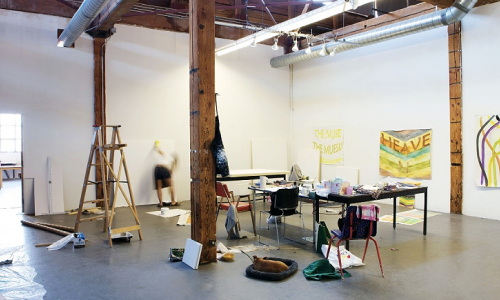
A routine is one of those things in life that can be either a huge relief or a giant burden. I know that I tend to oscillate between those two feelings, generally dependant on whether or not I have an established routine in my life at the time. I think that for the most part, we’re creatures of habit. Without some kind of structure in day to day life it becomes very easy to get lost, as there may not be an easy way to put things into relative perspective.

Of course, tolerance, let alone preference, for an unpredictable lifetstyle varies. From what I know of myself, I would put myself somewhere in the middle of that spectrum. I’m pretty comfortable with change and don’t really get stressed out about the future most of the time. My baseline way of seeing the world seems to be something along the lines of “things get crazy sometimes, but I’ll be okay.”
As far as lifestyles go, I’ve covered most of the bases between ‘lack of any kind of routine’ and ’same routine every day, week after week.’ The former category is best illustrated by the on-call shift work that I’ve done for several years, concurrent with taking classes for most of that time. Nevermind not knowing what your week is going to look like – this is more like not knowing whether you’ll be working that day/night when you get up for the day. As a career advisor, things have been much more predictable and I’ve been able to establish a pretty consistent routine that’s been quite comfortable.
Being able to make plans a week or more in advance without knowing there’s a 50% chance you’ll cancel them is pretty nice, after all.
There is a danger to having too rigid a routine, however. I think I experienced a side effect of my current routine-ized lifestyle last night, when I found myself feeling distinctly melancholy and couldn’t really put my finger on why. I’m sure you’ve experienced something like this – things are going along fine, then suddenly you just kind of feel… low.
After sitting with it for a while, and probably convincing my fiancée that she had done something to upset me (she hadn’t), I came to the conclusion that I had been neglecting something in my life. I grabbed the guitar that was collecting dust in the corner of the room and strummed for a while, then I tried a little bit of writing. I realized that I haven’t been creating anything for the past… I don’t even know how many months.
Without that sudden emotional dissonance, the epiphany probably wouldn’t have come and I may have gone another several months neglecting what has historically been an important part of my life. Emotions are often thought of as communications from your body – they are telling you something about your life, be it positive or negative. In this case, I was being told that something was missing. Fortunately, I was able to identify that and take action, but it’s not always that simple. I recently attended a workshop on something called Focusing-Oriented Therapy, which is essentially about facilitating that “communication with your body” process, so that probably helped. In any case, thanks, emotions!
The reason I bring that up in a post about routines is that once you’ve got a good routine set up for yourself, it’s almost like you can shift into autopilot. This makes sense after all, you can devote more mental energy to actually doing the things in your life when you don’t have to worry about what it is that those things are going to be and when. The problem is that it’s impossible to plan out your life in a way that’s going to meet every one of your needs. Change and spontaneity, as uncomfortable as they may sometimes seem, infuse life with variety and help to bring things into balance. You may not know that you needed to have a really good laugh, for example, until you actually have one. In the comfort of a solid routine, we can forget about those important things in life that are not routine-able.
Writing this, I know there are lots of people out there who are hungering for more routine. It only takes me a few weeks without one before I start getting cranky and unmotivated.
One of the situations that best illustrates this is the job search. One of the biggest job search killers is a lack of routine. Without some kind of solid structure, it’s easy to lapse into passivity, demotivation, and pessimism, none of which are going to help you get a paycheck. This is why one of the tips a lot of career development practitioners will give to serious job seekers is to create a schedule that they can stick to, not only to help hold themselves accountable to the actions that will help create career opportunities, but also to stay active so that they feel like they’re always doing something and constantly moving towards their goals.

It’s a good idea to schedule in time off from the job search as well, when you feel like you’ve earned it. Generally speaking, the more you can make your search feel like a full-time job, the more likely it is to get you into one.
But after you create that routine, ask yourself this: is there anything I’m neglecting? Do I need to change my routine – make myself a bit more uncomfortable?
Try listening to the messages your body is sending you.

















